The four-time world champions Verstappen joins in the all-time list – and those still left ahead of him

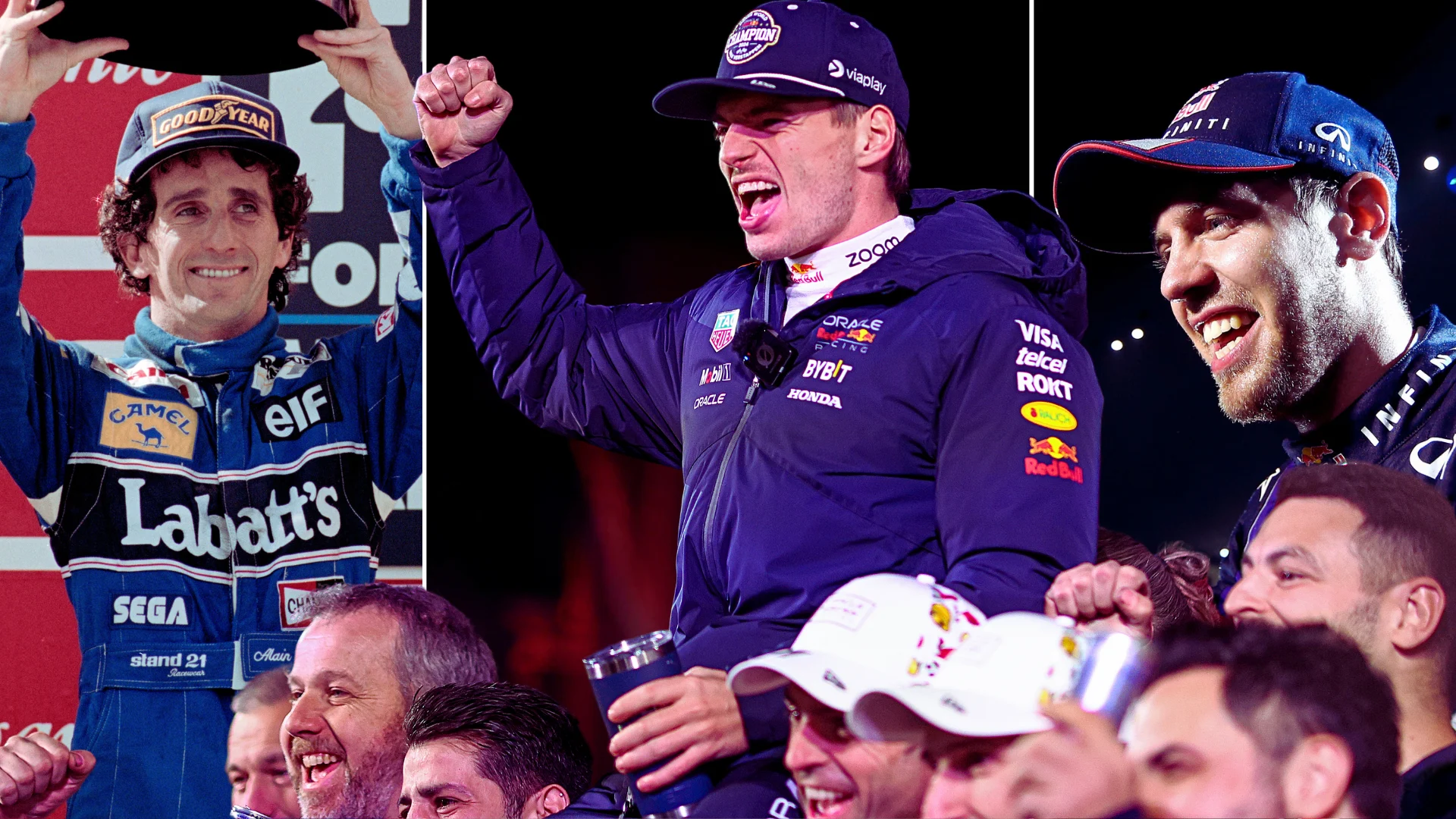
Max Verstappen is now one of a select group of drivers in F1 history to become a four-time world champion, having sealed the title at the Las Vegas Grand Prix. In light of the Dutchman’s achievement, we’ve taken a look at the famous names he joins on the all-time list – as well as the three who still remain ahead of him…
READ MORE: Verstappen crowned champion as Russell heads Mercedes 1-2 in Las Vegas
Four-time F1 world champions
Alain Prost (1985, 1986, 1989, 1993)
After claiming his debut victory on home turf at the 1981 French Grand Prix, Alain Prost didn’t look back. The driver who later became known as ‘The Professor’ scored further wins in the years that followed, but it was not until 1985 that he experienced championship glory with McLaren, making him the first French world champion.
Prost repeated the feat in 1986 to claim back-to-back titles – before his next arrived during a period famed for an intense rivalry with team mate Ayrton Senna. The pair were a dominant force in 1988, with McLaren winning all but one race – but it was Senna who claimed his debut championship.
WATCH: How Prost returned from the sidelines to make a title-winning comeback
Tensions escalated in 1989, culminating in a controversial collision at the Suzuka season finale which ultimately saw Prost take the drivers’ crown. Following a move to Ferrari in 1990, history repeated itself when the pair were again involved in a contentious clash at the same venue, with Senna claiming the championship on that occasion.
Relations between Prost and the Scuderia soured in 1991, resulting in the Frenchman making an early exit before the season was over. After a sabbatical in 1992, Prost returned to the grid with Williams in 1993 and earned his fourth and final title before retiring from the sport at the end of the campaign.
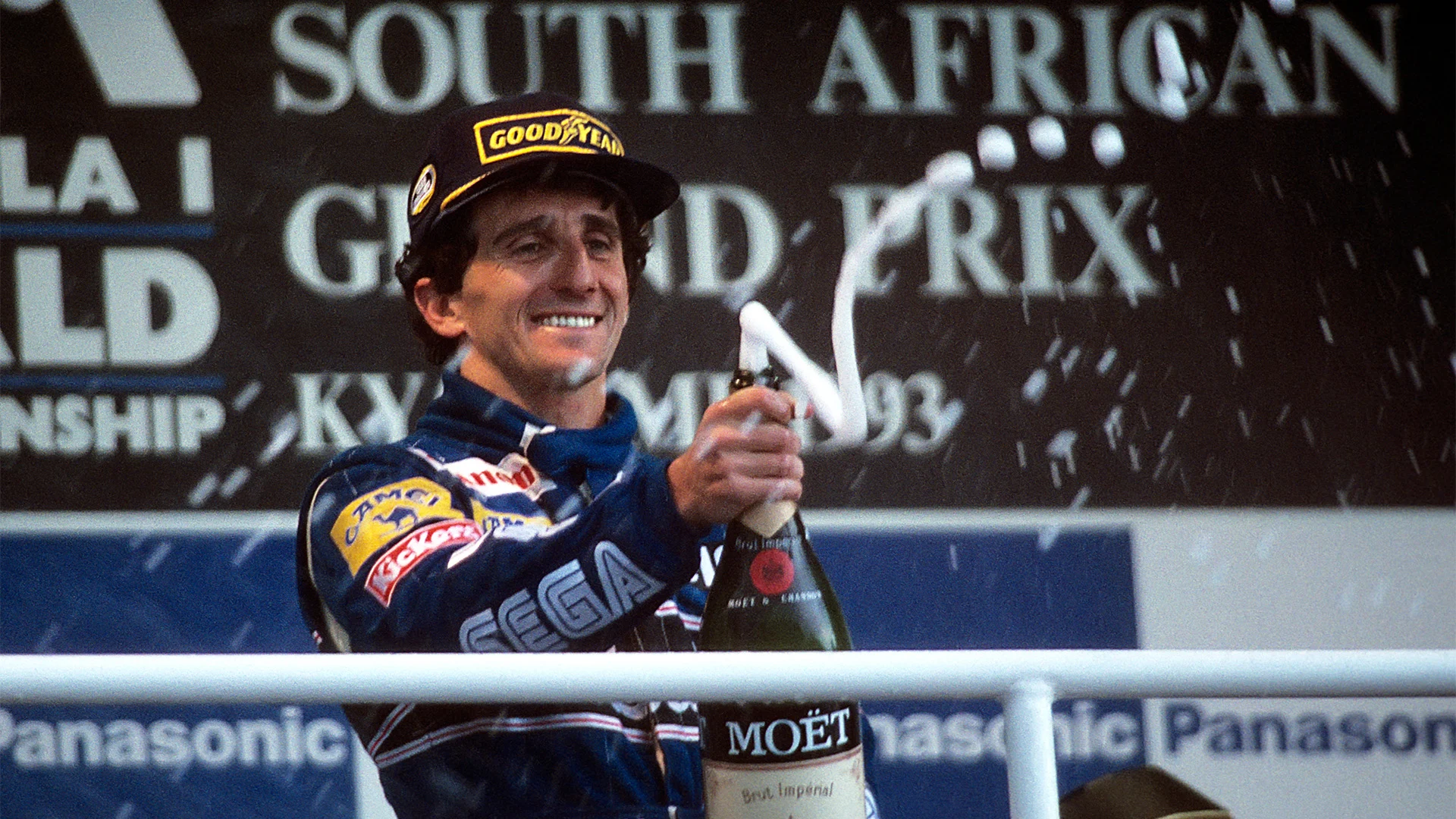
Sebastian Vettel (2010, 2011, 2012, 2013)
Sebastian Vettel made his mark in Formula 1 by taking a surprise first win at a rain-soaked Monza in 2008, during what was still his first full season in the sport with Toro Rosso. A step up to the main Red Bull team promptly followed in 2009, before Vettel joined the likes of Fernando Alonso, Jenson Button and Lewis Hamilton in a hotly-contested 2010 title fight.
It was Vettel who emerged as the victor, making him the youngest world champion in history at 23 years and 134 days old. His title defence in 2011 proved to be a smoother affair, the German claiming his second championship with four races to spare.
Things were not quite so straightforward in 2012, however, a season that featured eight different winners from six teams. Alonso had built a decent lead in the standings by the midway point, before a strong run of victories put Vettel back into contention. And while a first-lap incident at the finale in Brazil dropped the Red Bull man down the order, an impressive comeback saw him finish in sixth – meaning that he beat Alonso to the title by three points.
Vettel made it four in a row for both himself and the team in 2013, an achievement that saw him follow in the illustrious footsteps of Juan Manuel Fangio and Michael Schumacher.
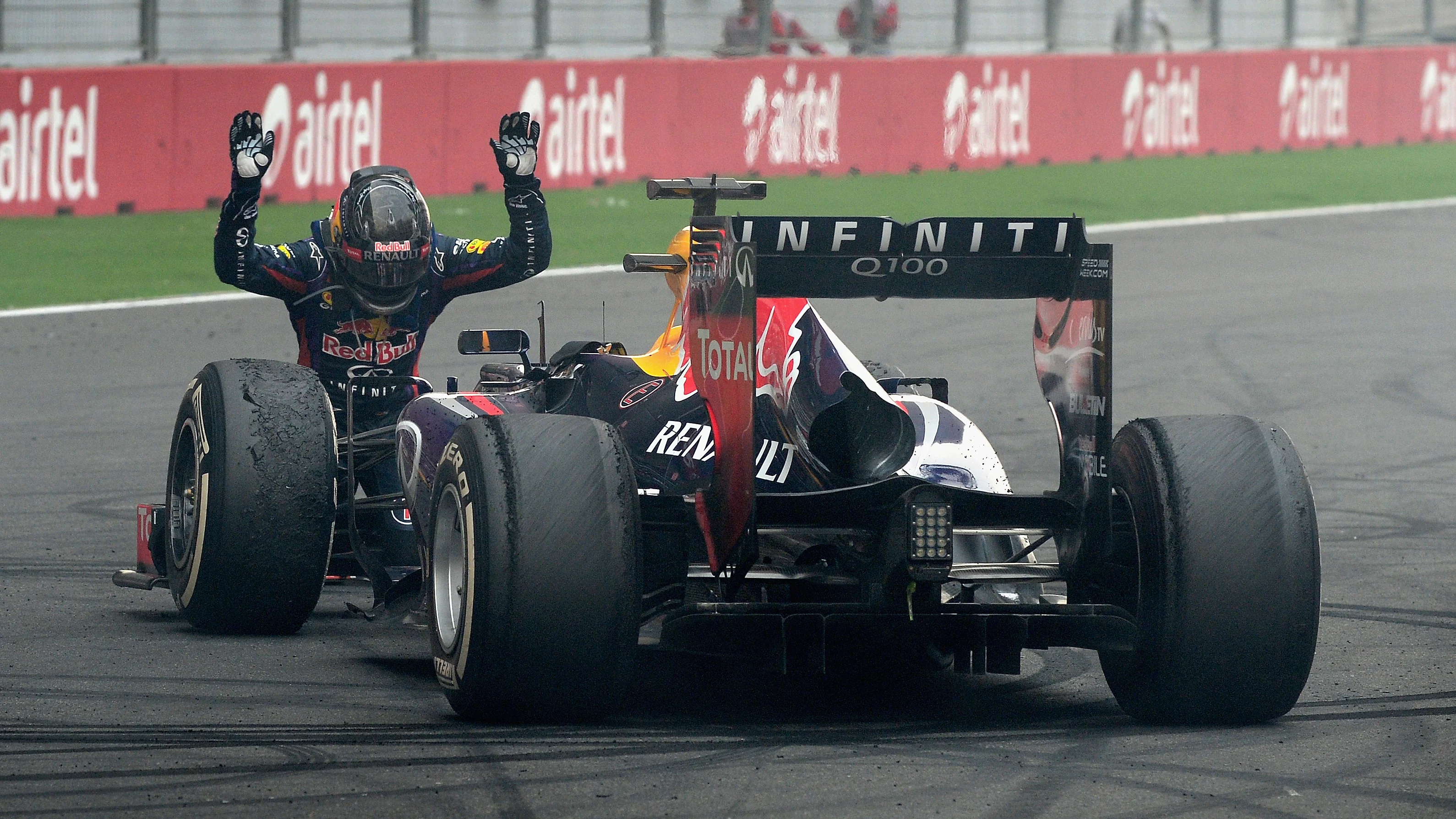
Five-time F1 world champion
Juan Manuel Fangio (1951, 1954, 1955, 1956, 1957)
One of the most revered names in F1 history, Juan Manuel Fangio’s record of five world championships was unequalled for decades. The Argentinian made his debut in the inaugural Formula 1 season in 1950 and promptly won his first title one year later with Alfa Romeo.
After suffering a broken neck in a heavy crash during a non-championship event at Monza in 1952, Fangio returned to action in 1953, a season in which he finished second to Alberto Ascari. But a run of success that was for many years unmatched kicked off in 1954, with Fangio triumphing after switching from Maserati to Mercedes.
READ MORE: From Fangio to Hamilton – Who are the oldest world champions in the history of Formula 1?
Another title came with the Silver Arrows in 1955, before Fangio moved to Ferrari and added a fourth championship to his tally in 1956. His fifth and final triumph was achieved after a return to Maserati in 1957, having claimed his last – and what many deem as his greatest – race win at the German Grand Prix where he bounced back from a nightmare pit stop to beat his rivals to victory.
Fangio remained as Formula 1’s only five-time world champion until 2002, when that record was equalled by a certain Michael Schumacher…
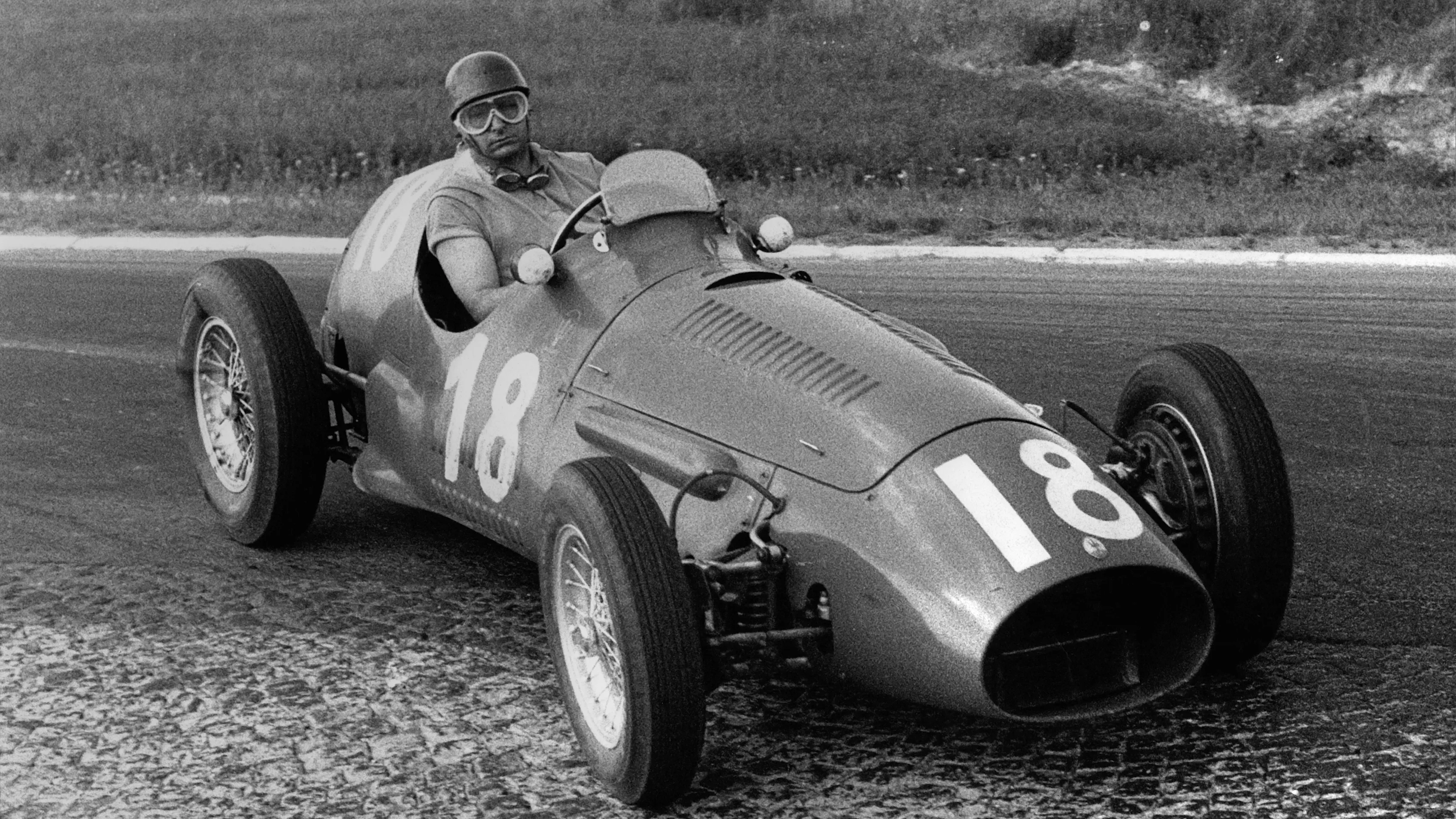
Seven-time F1 world champions
Michael Schumacher (1994, 1995, 2000, 2001, 2002, 2003, 2004)
After an eye-catching – albeit brief – debut for Jordan at the 1991 Belgian Grand Prix, Michael Schumacher was quickly signed by Benetton, with whom he clinched his first race win in 1992. His debut championship followed in 1994, though it arrived after a slightly controversial collision with rival Damon Hill at the title showdown in Australia.
Schumacher made it back-to-back championships with his second in 1995 before opting to move to Ferrari in 1996, a team that had been struggling to match their past glory days. While a broken leg in 1999 interrupted his title charge, there were no such problems for the German in 2000 when he became the Scuderia’s first champion in 21 years.
BEYOND THE GRID: Inside Michael Schumacher’s final, and most dominant, World Championship
This kickstarted a dominant period in which Schumacher and Ferrari stormed to consecutive championships over the next four years, including an especially commanding performance in 2002 where Schumacher took the drivers’ title with six races still to go.
The spell was broken by Fernando Alonso and Renault in 2005 and Schumacher retired from the sport at the close of 2006, though made a three-year return with Mercedes in 2010. While this comeback was a far cry from his winning days, Schumacher’s place in the history books had already been well and truly sealed as a seven-time world champion.
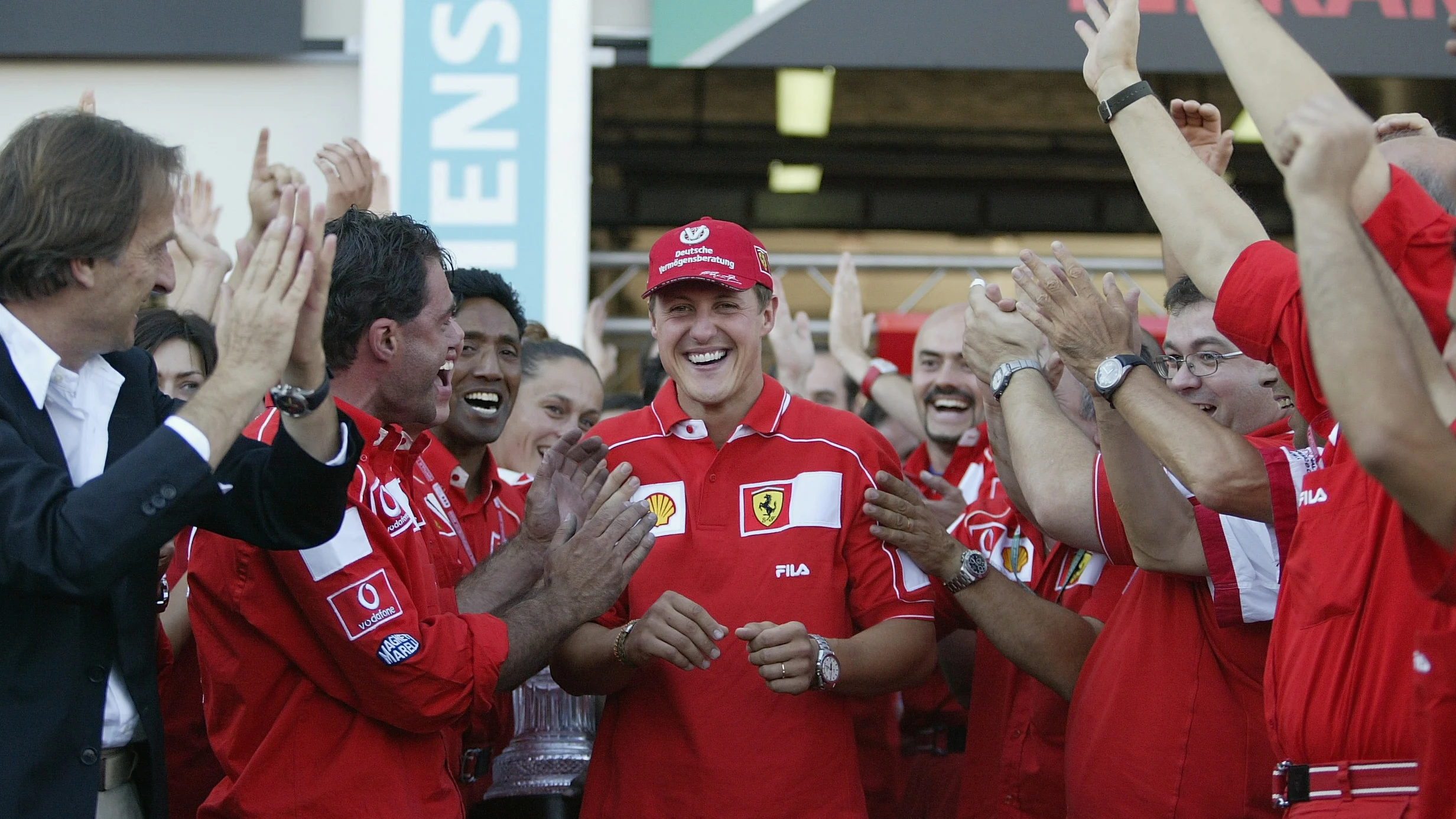
Lewis Hamilton (2008, 2014, 2015, 2017, 2018, 2019, 2020)
That incredible run of seven titles looked unbeatable for some time – until Lewis Hamilton went on to match Schumacher’s dominance, as well as surpassing several other records set by the legendary German driver.
Like Schumacher before him, Hamilton made an immediate impression during his rookie campaign in 2007, a year in which both he and two-time world champion McLaren team mate Fernando Alonso nearly won the title. After Alonso departed the squad at the end of that tension-filled season, Hamilton became the team leader and won his first championship – just – in dramatic style at the 2008 Brazilian Grand Prix.
CHAIN REACTION: How one 1990s driver swap led to Lewis Hamilton’s first F1 world championship
The years that followed contained various ups and downs for Hamilton. But a surprise switch to Mercedes in 2013 proved to be an inspired move, with the Silver Arrows acing the introduction of new technical regulations in 2014 and transforming into the strongest team on the grid.
This brought a return to championship glory for Hamilton in that season, and he went on to earn the title in five out of the six subsequent years, with team mate Nico Rosberg interrupting his run by winning a fierce intra-team battle in 2016. By becoming champion for a seventh time in 2020, Hamilton equalled Schumacher’s historic feat – and only time will tell if any other driver can match or even eclipse this...
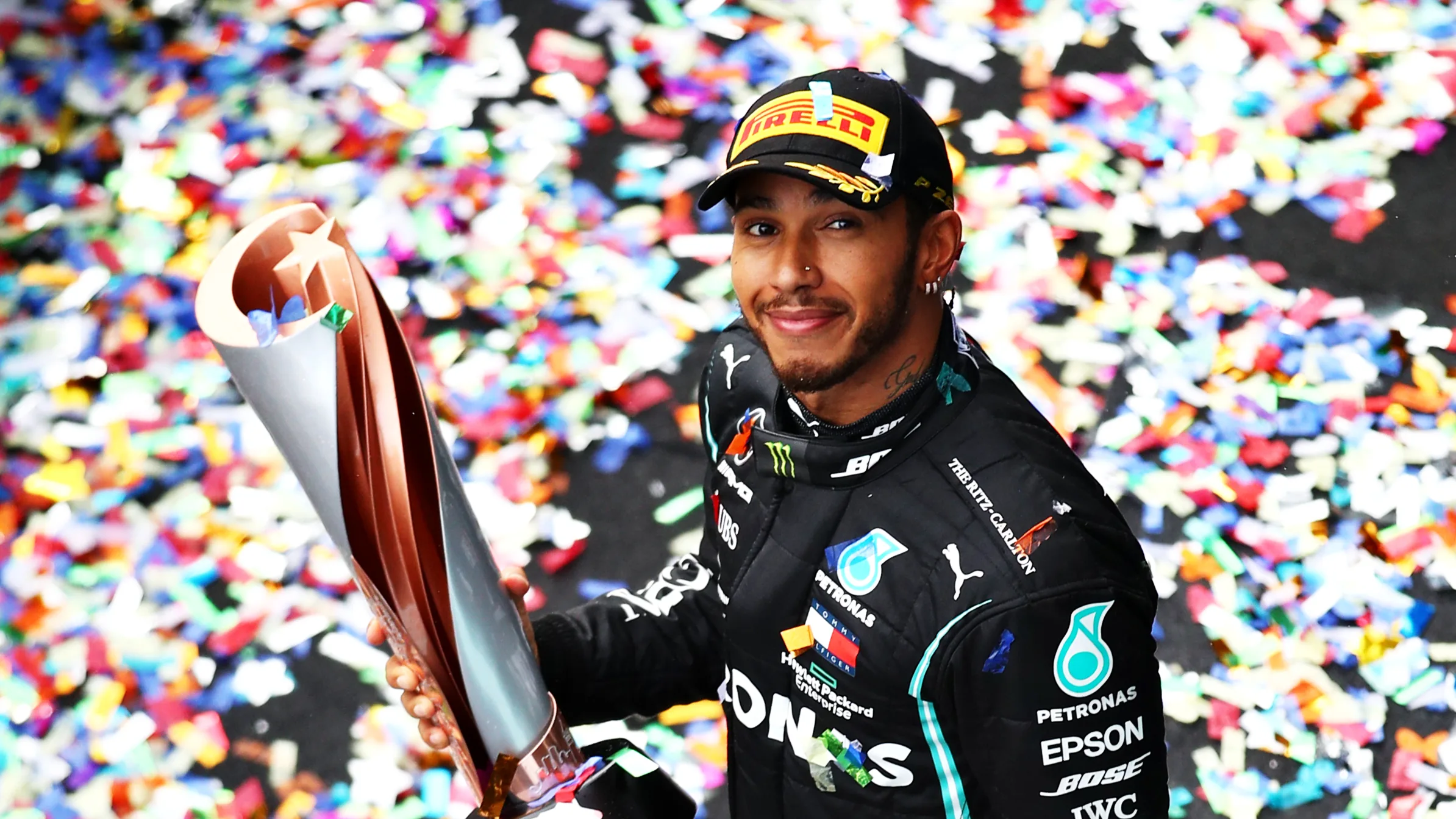
Next Up
Related Articles
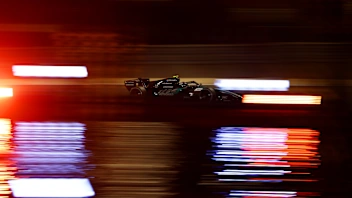 Antonelli and Mercedes top final day of first Bahrain test
Antonelli and Mercedes top final day of first Bahrain test.webp) Why Aston Martin have hope despite their early struggles
Why Aston Martin have hope despite their early struggles/16x9%20single%20image%20-%202026-02-13T140856.691.webp) Russell feels Mercedes have ‘taken a step back’ in Bahrain
Russell feels Mercedes have ‘taken a step back’ in Bahrain Russell’s best meme moments as he turns 28
Russell’s best meme moments as he turns 28 Wheatley ‘proud’ of Audi’s progress across pre-season testing
Wheatley ‘proud’ of Audi’s progress across pre-season testing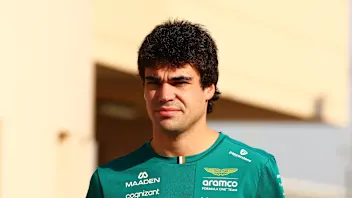 Stroll claims Aston are ‘four-and-a-half seconds’ off pace
Stroll claims Aston are ‘four-and-a-half seconds’ off pace